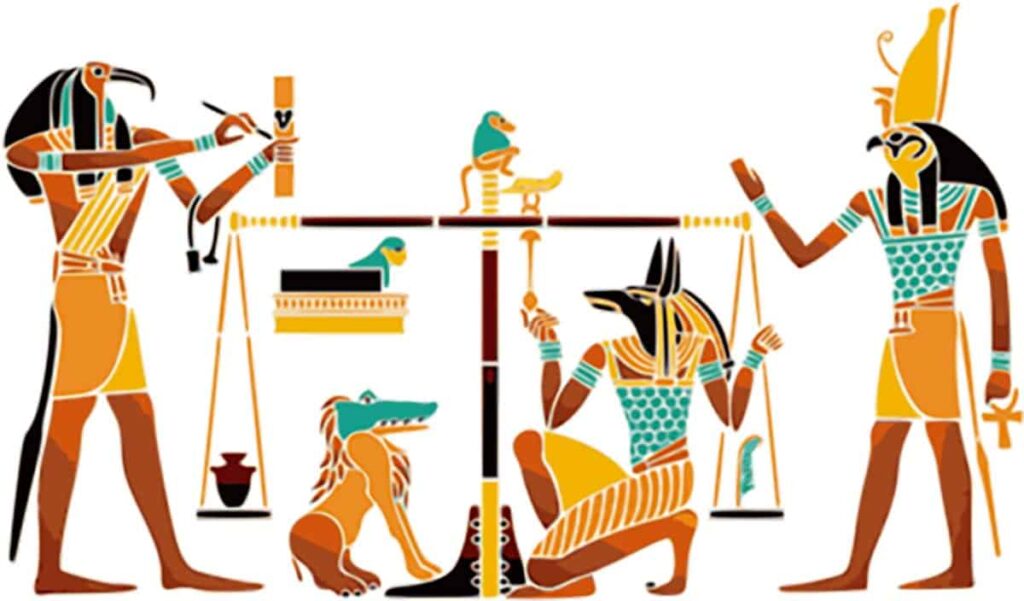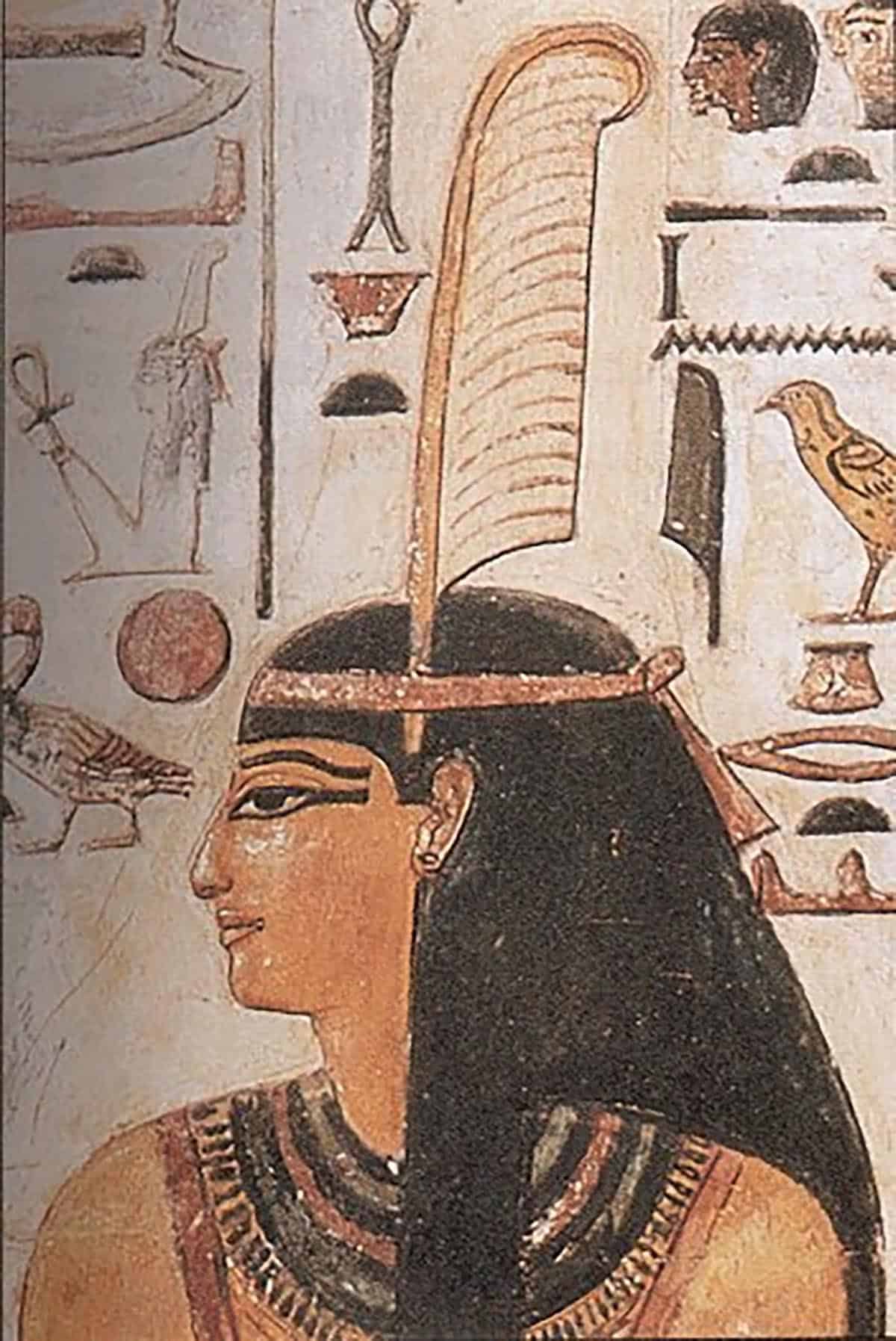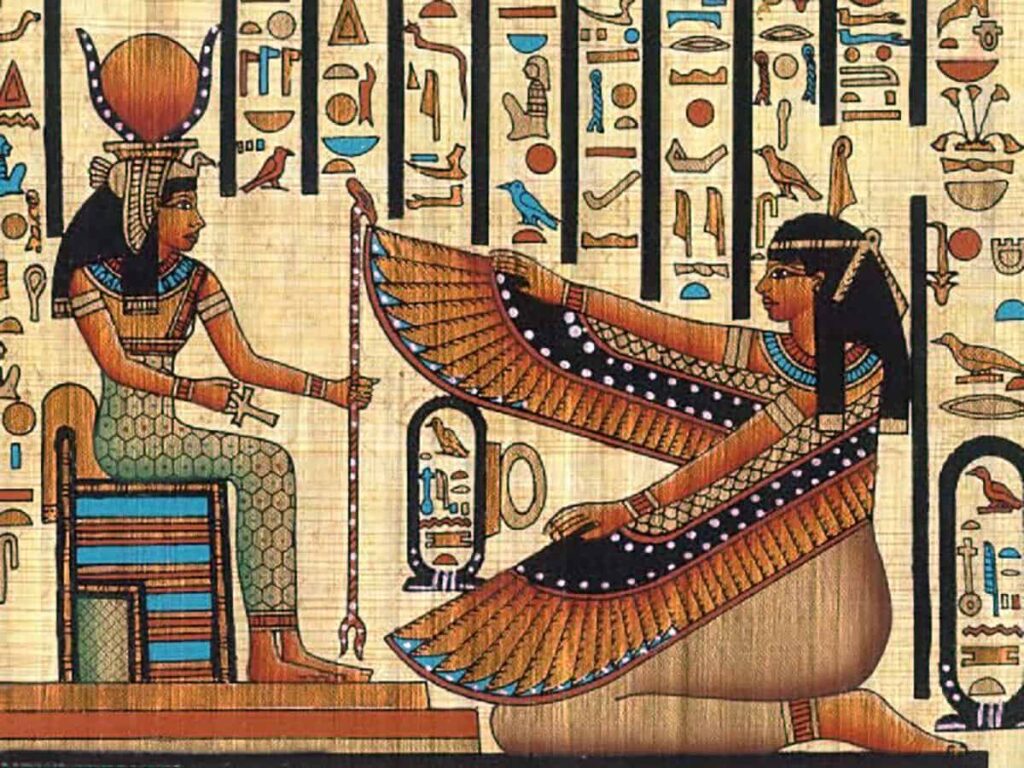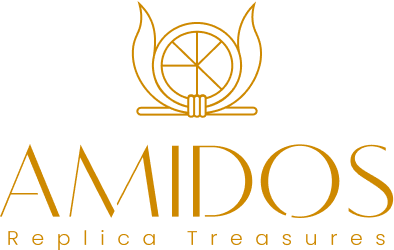The Egyptian Book of the Dead, known as “Book of Coming Forth by Day” in ancient Egypt, is a collection of spells and rituals intended to guide the deceased through the afterlife. Central to its teachings are the 42 Rules of Maat, principles of truth, justice, and harmony personified by the goddess Maat.
Maat, symbolized as a goddess with a feather on her head, represents the concept of order and balance in Egyptian mythology. The 42 Rules of Maat, also known as the Negative Confessions, were recited during the Weighing of the Heart ceremony in the Hall of Maat, where the heart of the deceased was weighed against the feather of Maat.
Each rule outlines moral and ethical standards that ancient Egyptians believed were necessary for a soul to achieve eternal life.
These rules were not only moral guidelines but also formed the basis of Egyptian law and society. They reflect the importance ancient Egyptians placed on maintaining order, harmony, and truth in both life and death.

Who Was Ma’at?
Ma’at was the Egyptian goddess that stood for the values of truth, honor, justice, balance and order. She is always depicted wearing an ostrich feather in her headdress, which symbolized truth and justice.
In the Egyptian creation myth, Ma’at was often considered to be the child of the Sun God, Ra. It’s said that she was created when he rose from the waters of chaos to create the world.
Because Ma’at brought order to chaos, she was much more than a goddess to the ancient Egyptians. She represented the very concept of harmony and balance, which was the the most deeply held conviction in Egyptian society. Even the pyramids are a testament to their reverence for balance, symmetry and order, which are said to be built on the laws of sacred geometry.
The role of the King was to uphold Ma’at, because without Ma’at one would slip into selfishness and greed, and civilization would be without order; a return to darkness and chaos.

Here is a list of the 42 Negative Confessions:
- I have not committed robbery with violence.
- I have not stolen.
- I have not slain men and women.
- I have not stolen grain.
- I have not purloined offerings.
- I have not stolen the property of the god.
- I have not uttered lies.
- I have not carried away food.
- I have not uttered curses.
- I have not committed adultery.
- I have made none to weep.
- I have not eaten the heart [i.e., I have not grieved uselessly, or felt remorse].
- I have not attacked any man.
- I am not a man of deceit.
- I have not stolen cultivated land.
- I have not been an eavesdropper.
- I have slandered [no man].
- I have not been angry without just cause.
- I have not debauched the wife of any man.
- I have not debauched the wife of [any] man. (repeats the previous affirmation but addressed to a different god).
- I have not polluted myself.
- I have terrorized none.
- I have not transgressed the law.
- I have not been wroth.
- I have not shut my ears to the words of truth.
- I have not blasphemed.
- I am not a man of violence.
- I am not a stirrer up of strife (or a disturber of the peace).
- I have not acted (or judged) with undue haste.
- I have not pried into matters.
- I have not multiplied my words in speaking.
- I have wronged none, I have done no evil.
- I have not worked witchcraft against the king (or blasphemed against the king).
- I have never stopped [the flow of] water.
- I have never raised my voice (spoken arrogantly, or in anger).
- I have not cursed (or blasphemed) God.
- I have not acted with evil rage.
- I have not stolen the bread of the gods.
- I have not carried away the khenfu cakes from the spirits of the dead.
- I have not snatched away the bread of the child, nor treated with contempt the god of my city.
- I have not slain the cattle belonging to the god.
- I have not defrauded the offerings of the gods.

These declarations illustrate the ancient Egyptian belief in living a morally upright life and were essential for achieving a favorable judgment in the afterlife. They reflect the values of truth, justice, and righteousness that were fundamental to Egyptian society and spirituality

